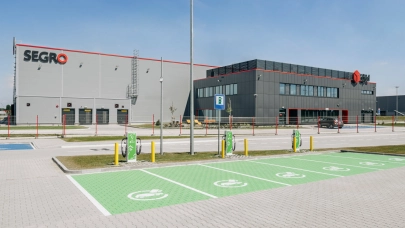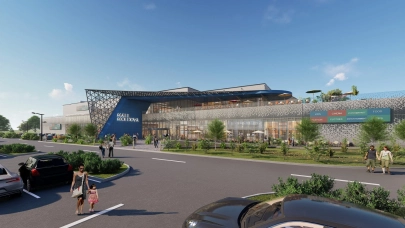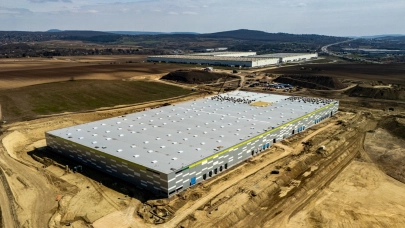
Over the past year, leasing activity in the industrial real estate market in Slovakia has slowed with demand shifts in the automotive, retail and e-commerce sectors. The starting point for insights into logistics trends at Bratislava Property Forum 2025 has been well set taking the discussion further touching the risks, opportunities, new construction law and adaptability.
The chair of the panel discussion Filip Kubica, Senior Consultant, Industrial Agency at Cushman & Wakefield listed a few figures first: „Currently, there is over 4 million sqm of Class A industrial space built in Slovakia with the vacancy rate at 4%. Just to compare our neighbour, the Czech Republic, has over 12 million sqm of space with vacancy at 3%.“ Thus we could expect more industrial development, Kubica suggested and asked about past year‘s observings and experience in the industrial market.
Alexandra Gačevičová, Commercial Director, Industrial & Logistics at BHM Group, noted a slowdown in demand but still within the 10-year average. Gačevičová also mentioned the shift in demand patterns, with a decrease in demand from automotive providers and an increase from retail and e-commerce sectors. „It's also important to say that this correction that happened in Slovakia was visible across the wider Central and Eastern European region,“ she added. Automotive and third-party logistics providers used to dominate the demand for several years, and since 2024 they have slowed back. Other sectors like retail and e-commerce have stepped up.
Ivan Pastier, Commercial Director at Panattoni Slovakia, added that the COVID-19 pandemic led to a shift towards more resilient supply chains, moving from just-in-time to just-in-case strategies. „So what we see, it's a combination of these two needs, the first is lean, and the second is resilient,“ Pastier said and emphasised the importance of being flexible and adaptable to changes in supply chain dynamics.
Filip Kubica then moved to the investors' perspective asking whether logistics was still a favoured asset class among investors. Péter Számely MRICS, Head of Real Estate Finance CEE at HYPO NOE Landesbank, confirmed that logistics were still popular but not as high on the agenda as before, with retail and non-residential properties gaining more attention.
Geopolitical conflicts and economic challenges impact heavily the automotive and logistics industries, especially in terms of offshoring and nearshoring strategies. Ivan Pastier named different factors when considering relocation: „One factor is where our customers are, then you need a good supply chain, the availability and the cost of the workforce.“ Slovakia can still comply with these requirements to be an attractive location. Alexandra Gačevičová highlighted the benefits of Slovakia's industrial ecosystem, particularly for the automotive industry. „China is no longer as cheap production as it used to be. The salaries of the workers are comparable to Central Eastern Europe,“ Gačevičová pointed out adding: „What's changing is the players and their strategies. You can see that European car producers are selling fewer cars, therefore they're reducing their production capacities and their warehousing capacities. They are closing down the production in Germany and moving to Slovakia. So in certain ways, Slovakia is benefiting from this situation.“
Poland is often given as a positive example in the region regarding the market size, and infrastructure preparation such as an efficient motorway network and land availability for long-term investment. As Peter Számely explained, smaller countries such as Slovakia could be more vulnerable in case of crisis, especially when struggling with incomplete highway infrastructure.
Since the beginning of April, the new construction law has been applicable in Slovakia. Filip Kubica discussed its potential impact on the construction process and permitting.
Ivan Pastier expressed hope for smoother and faster processes but acknowledged uncertainty due to the law's implementation. Alexandra Gačevičová shared the same perspective highlighting the law's aims to streamline procedures, protect developers from obstruction, and digitalise the process. „There are parts which should help us developers to be more protected against certain individuals who were deliberately obstructing the construction process,“ she admitted. „The law is important for the country's competitiveness and attractiveness to foreign capital. And most small countries rely on it,“ Peter Számely concluded.



